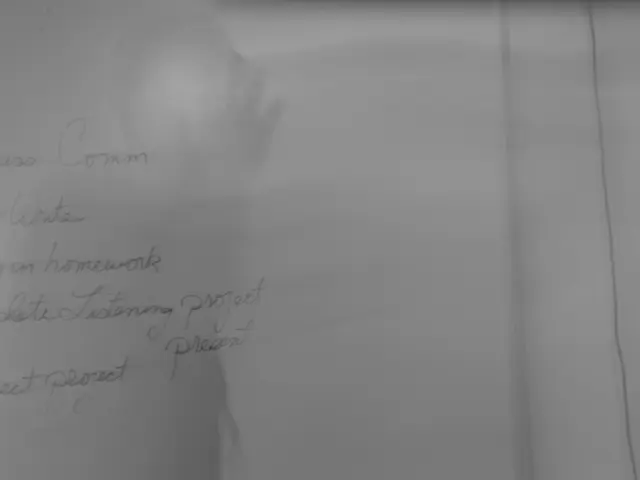Revving Up Gas Power Plants: Uniper Pleas for Swift Expansion - Vattenfall Warns of Overkill
Solar energy facilities: Uniper pushes for swift growth - Vattenfall alerts about surplus production capacity - Power generation companies: Uniper pushing for rapid growth - Vattenfall issues caution on oversupply
Hear, hear for speedier green lights on gas power plants, says Uniper boss Michael Lewis to Süddeutsche Zeitung. He's throwing his weight behind LNG import terminal projects, which the federal government is desperately promoting after last year's Russian attack.
Germany needs to move its gas plant construction gears, according to this British bigwig. "We need the German speed for gas power plants," he states. With an air of urgency, he points to a looming power supply gap by 2030. "Germany needs reliable capacity, plants that run rain or shine," he asserts, adding that a deficit exists now, and it's only going to grow bigger in the future.
But the Vattenfall CEO, Robert Zurawski, thinks the German government's expansion strategies may be overambitious. He's on record telling Redaktionsnetzwerk Deutschland (RND), "20 gigawatts is just too much in our view." Gas power plants, he argues, are a relic of the past, and the focus should be on beefing up storage capacity to tackle bottlenecks.
Behind the Scene
The German government is planning to construct up to 20 GW of new gas-fired power plants by 2030, but they'll have to be hydrogen-ready to abide by EU state aid rules. The new energy minister, Katherina Reiche, is advocating for reliable, controllable electricity generation, hinting that renewables alone can't handle the job effectively and affordably.
Major players like Uniper and Vattenfall are presumably keen on the government's new gas power plant plans, but their positions on the expansion aren't explicitly disclosed. They likely see opportunities in the government's plans, yet their specific standpoints or worries might be Los Angeles at the moment, not quite clear as a crystal ball.
Environmental and climate concerns, EU state aid rules, and reliability issues are some challenges that could crop up with the expansion of gas power plants. But the concern du jour is their compatibility with long-term climate goals and their ability to function in a decarbonized world.
In essence, while Uniper and Vattenfall's stances on the expansion of gas power plants aren't crystal clear, it's apparent that major energy companies are front and center in the debates about the federal government's gas power plant expansion policies. Their concerns could revolve around technological hurdles, financial logistics, and integration with renewable energy sources to ensure a sustainable energy future.
- Uniper's CEO, Michael Lewis, is pushing for quicker approval of gas power plants in EC countries, with a focus on LNG import terminal projects, citing the need for reliable capacity to address a power supply gap by 2030.
- Vattenfall's CEO, Robert Zurawski, questions the overambitiousness of Germany's gas power plant expansion plan, suggesting that focusing on beefing up storage capacity might be more beneficial in tackling bottlenecks.
- The German government plans to construct up to 20 GW of new gas-fired power plants by 2030, but they must be hydrogen-ready to align with EU state aid rules.
- Major energy companies like Uniper and Vattenfall are involved in discussions about the federal government's gas power plant expansion policies, with potential concerns revolving around technological hurdles, financial logistics, and integration with renewable energy sources.
- The expansion of gas power plants presents challenges such as environmental and climate concerns, compatibility with long-term climate goals, and their ability to function in a decarbonized world, amidst the focus on renewable energy and policy-and-legislation in the industry and politics.








